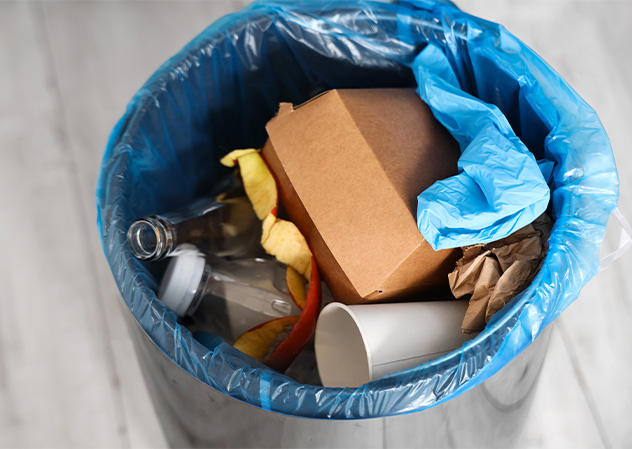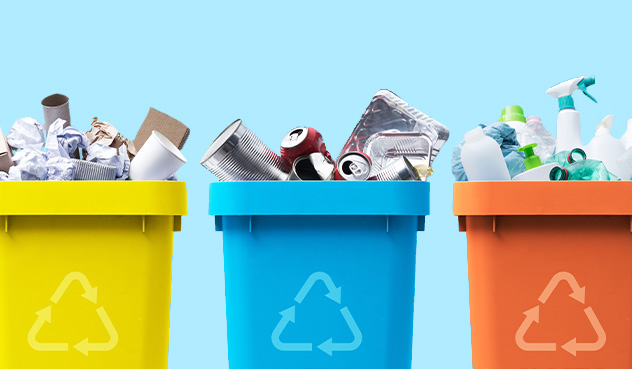New regulations for the separation of organic waste have been in effect nationwide since May 1. An overview of the background, consequences, and separation rules.
What actually belongs in the organic waste? And what doesn't? Anyone who's thinking, "Whatever, what can you do?" will now be confronted with stricter measures. Since May 1, 2025, stricter rules for separating organic waste have been in effect. This is based on a new EU regulation that stipulates that only one percent of contaminants – such as plastic, metal, or glass – may end up in the organic waste bin. If this limit is exceeded, fines may be imposed or the organic waste may not be collected.

Often, just a quick glance into the bin is enough for the waste disposal company employees to see whether the waste has been properly separated. If the bin is filled with plastic bags, the waste disposal company is theoretically allowed to exercise its right and simply leave the bin where it is. It's also possible that the organic waste will then have to be disposed of as residual waste or as a special collection with a change of container. This, in turn, involves additional costs, which must then be passed on to the tenants via the operating costs.
How to check
The Federal Ministry for the Environment, Climate Protection, Nature Conservation and Nuclear Safety (BMUV) points out that "inspections of organic waste bins (...) are carried out randomly, in campaigns, or regularly by simply opening the bins or by using detection devices before they are transferred to the collection vehicle." The BMUV also explains that detection systems are increasingly being used on collection vehicles to indicate foreign substances in organic waste during collection.

The aim of the Biowaste Ordinance (BioAbfV) is to prevent foreign substances from entering organic waste, as these not only pollute the waste but also pose a threat to humans and the environment. This is because plastics, which make up the majority of foreign substances in organic waste, gradually decompose into microplastics. However, these microplastics are so fine that they cannot be filtered out by filter systems. When organic waste is then composted, these harmful substances also enter the soil and water and ultimately the human body.
This can go in the bin, this can’t
There are indeed regional differences regarding what can and cannot be put in organic waste. However, the general rule applies everywhere: plastic does not belong in organic waste. The Berlin City Cleaning Service (BSR) also provides the following information for the Berlin area:
The following are permitted in organic waste:
- Leftovers (fruit, vegetables)
- Cooked test (preferably wrapped in newspaper)
- Coffee grounds and filters
- Tea and tea bags
- eggshells
- Kitchen paper
- flowers, foliage
The following are prohibited in organic waste:
- Plastics and packaging
- Metals
- Aluminum foil or cans
- Hygiene products
- diapers
- vacuum cleaner bags
- textiles
- Cat and small animal litter
- Wood
- ash
- Earth
- sand
- gravel
- stones
- Glass
So-called bioplastics, i.e., compostable plastic bags that are available specifically for organic waste, are often a controversial issue. The BSR clearly states: No! Bioplastics decompose too slowly and therefore cannot be disposed of with organic waste!
